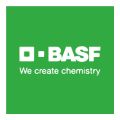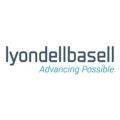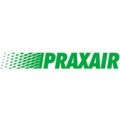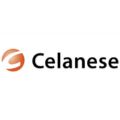
Overview
Chemicals are substances that are made up of elements and have distinct properties. They can exist in various forms, including solids, liquids, and gases. Chemicals are fundamental to the study of chemistry and play a crucial role in many aspects of everyday life. Chemicals can be naturally occurring or artificially synthesized through chemical reactions. Chemicals can have both beneficial and potentially harmful effects on human health and the environment. While many chemicals are essential for our well-being, improper handling or exposure to certain chemicals can pose risks.
GAO Tek’s radiation meters have the following applications in chemical industry:
- Radioactive Material Handling: GAO’s chemical industry often deals with radioactive materials for various purposes, such as research, testing, and production. Our Radiation meters are used to measure radiation levels in areas where radioactive materials are handled, stored, or transported. This helps ensure proper shielding, containment, and adherence to safety regulations.
- Environmental Monitoring: Our chemical industry can release radiation into the environment through various processes. GAO’s radiation meters are used to monitor radiation levels in air, water, soil, and other environmental media to ensure compliance with regulatory limits and assess the impact on surrounding areas.
- Worker Safety: Our radiation meters are crucial for protecting workers from potential radiation exposure in the chemical. They are used to monitor radiation levels in work areas and personal protective equipment (PPE) to ensure that radiation exposure remains within acceptable limits. This helps minimize health risks and ensures a safe working environment.
- Equipment Calibration: GAO Tek radiation meters are used to calibrate and verify the performance of radiation-producing equipment, such as X-ray machines and irradiators. Regular calibration ensures accurate and reliable radiation measurements, which is essential for quality control, research, and compliance purposes in the chemical industry.
- Emergency Preparedness: In the event of a radiation incident or emergency, radiation meters are used to quickly assess the radiation levels and help responders determine the appropriate actions to protect personnel, contain the situation, and mitigate the impact on the environment.
Complying with Government Regulations
GAO Tek’s radiation meters comply or help our customers comply with the U.S. government regulations such as:
- Nuclear Regulatory Commission (NRC): The Nuclear Regulatory Commission (NRC) is an independent agency of the United States government responsible for the regulation of civilian use of nuclear materials and facilities. It was established by the Energy Reorganization Act of 1974 and operates under the provisions of the Atomic Energy Act of 1954.
- Environmental Protection Agency (EPA): The Environmental Protection Agency (EPA) is a federal agency of the United States government tasked with protecting human health and the environment. It was established in 1970 under the Environmental Protection Agency Act and operates under the authority of various environmental laws and regulations.
- Occupational Safety and Health Administration (OSHA): The Occupational Safety and Health Administration (OSHA) is a federal agency of the United States Department of Labor. It was created by the Occupational Safety and Health Act of 1970 to ensure safe and healthy working conditions for employees.
- Food and Drug Administration (FDA): he Food and Drug Administration (FDA) is a federal agency of the United States Department of Health and Human Services. It is responsible for protecting and promoting public health by ensuring the safety, efficacy, and security of food, drugs, medical devices, cosmetics, and other products.
- Department of Transportation (DOT): The Department of Transportation (DOT) is a federal agency in the United States responsible for regulating and overseeing various aspects of transportation. It was established in 1966 and has jurisdiction over air, water, rail, and road transportation.
GAO Tek’s radiation meters comply or help our clients comply with the Canadian regulations such as:
- Radiation Protection Regulations (RPR): These regulations outline the requirements for the protection of workers, the public, and the environment from radiation exposure. They specify the limits for radiation doses, the use of radiation monitoring equipment, and the qualifications and responsibilities of radiation protection personnel.
- Class II Nuclear Facilities and Prescribed Equipment Regulations: These regulations apply to facilities and equipment that use nuclear substances, such as radiation-emitting devices or sources. They cover licensing, safety requirements, radiation monitoring, and reporting obligations for the operation of Class II nuclear facilities and prescribed equipment.
- Packaging and Transport of Nuclear Substances Regulations (PTNSR): These regulations establish requirements for the packaging, labeling, and transportation of nuclear substances, including radioactive materials. They ensure the safe handling, transport, and storage of radioactive materials, including those used in the chemical industry.
- Nuclear Security Regulations: These regulations address the security of nuclear facilities, nuclear substances, and radiation devices. They establish measures for physical protection, access control, and security planning to prevent unauthorized access, theft, or misuse of radiation-emitting equipment or materials.
Case Studies of Radiation Meters in Chemical
Here are some practical examples of using radiation meters in chemical industry:
Dow Chemical Company: Dow Chemical, one of the largest chemical manufacturers in the world, has implemented radiation monitoring systems in some of its facilities. These meters are used to monitor radiation levels and ensure compliance with safety regulations to protect workers and the environment.
DuPont: DuPont, another major chemical company, has implemented radiation meters in its facilities as part of its radiation protection program. These meters are used to monitor radiation levels and provide early warning in case of any potential radiological hazards.
ExxonMobil: ExxonMobil, a global oil and gas company, has implemented radiation meters in some of its chemical processing plants. These meters are used to monitor radiation levels in various areas to ensure worker safety and compliance with regulatory requirements.
BASF: BASF, a leading chemical company, has implemented radiation monitoring systems in certain facilities. These meters are used to detect and monitor radiation levels to safeguard workers, prevent contamination, and comply with safety standards.
Chevron: Chevron, an integrated energy company, has implemented radiation meters in some of its chemical manufacturing and refining facilities. These meters help monitor radiation levels to ensure worker safety and environmental protection.
The main page of the radiation meters has more information on GAO’s radiation meters and their applications in various industries:
Use of Radiation Meters with Leading Software and Cloud Services in Chemical
GAO Tek has used or has facilitated its customers to use GAO’s radiation meters with some of the leading software and cloud services in their applications. Examples of such leading software include:
- Data Acquisition and Analysis Software: This software allows for the collection, storage, and analysis of radiation data obtained from radiation meters. It enables users to monitor radiation levels, generate reports, and analyze trends over time.
Calibration Software: Calibration software assists in the calibration process of radiation meters, ensuring their accuracy and reliability. It helps track calibration schedules, stores calibration data, and provides documentation for compliance purposes. - Radiation Monitoring Software: This software is designed specifically for real-time monitoring of radiation levels. It provides visual displays of radiation readings, triggers alarms when levels exceed predefined thresholds, and allows for remote monitoring and control of radiation meters.
- Mapping and Visualization Software: Mapping and visualization software utilizes geographic information systems (GIS) to create visual representations of radiation data. It helps identify radiation hotspots, track radiation sources, and visualize radiation levels in specific areas or regions.
- Dose Calculation Software: Dose calculation software is used to assess radiation dose received by individuals based on monitoring data. It calculates radiation doses, tracks cumulative exposure, and helps ensure compliance with dose limits and safety regulations.
- RADeCO: This software offers data analysis and reporting capabilities for radiation monitoring devices. It allows for the management and interpretation of radiation data collected by radiation meters and provides features such as real-time monitoring, data logging, dose calculation, and customizable reporting.
- Canberra Genie: Genie is a widely used software platform for analyzing radiation data from various detectors and radiation meters. It provides advanced analysis tools, data visualization, and reporting features. Genie supports different file formats and offers customizable analysis options for specific applications.
- RadCloud: RadCloud is a cloud-based platform specifically designed for radiation monitoring and analysis in educational settings. It offers features such as real-time data collection, data visualization, and reporting. RadCloud allows educators and students to securely store, access, and analyze radiation meter data from any device with internet connectivity.
- RadiationTracker: RadiationTracker is a cloud-based application that enables educational institutions to track and manage radiation exposure data. It allows users to input and store radiation meter readings, monitor cumulative radiation doses, and generate reports for compliance and safety purposes. The cloud-based nature of Radiation Tracker ensures data accessibility and centralization across different users and devices.
- Radiation Data Cloud: Radiation Data Cloud is a cloud service that facilitates the storage, analysis, and visualization of radiation data collected by radiation meters. It offers data management features, including secure data storage, data sharing among authorized users, and advanced analytics capabilities for in-depth analysis and interpretation of radiation measurements.
- RadiNet Pro Cloud: RadiNet Pro Cloud is a cloud-based software solution for radiation monitoring and analysis. It integrates with compatible radiation meters and enables educational institutions to remotely monitor radiation levels, collect data in real-time, and access historical data through a cloud-based interface. RadiNet Pro Cloud also provides advanced reporting and data visualization features.
- Radi Cloud: Radi Cloud is a cloud-based platform that allows users to upload, store, and analyze radiation meter data in a secure and centralized environment. It offers data visualization tools, data filtering options, and collaborative features for educators and students to analyze radiation measurements, compare data sets, and draw insights.
- RADIANT Cloud: RADIANT Cloud is an application cloud service designed for radiation detection and analysis. It offers cloud-based data storage, analysis tools, and reporting capabilities. RADIANT Cloud allows educational institutions to manage and analyze radiation meter data efficiently, supporting research, experimentation, and educational projects.
- Azure Machine Learning: Azure Machine Learning, offered by Microsoft Azure, provides a cloud-based platform for building, training, and deploying machine learning models. It can be utilized for advanced analysis of radiation meter data, enabling educators and students to develop predictive models, perform pattern recognition, and gain deeper insights from the data.
- Google Cloud AI Platform: Google Cloud AI Platform offers a range of machine learning and data analysis tools for cloud-based analysis of radiation meter data. It provides pre-built machine learning models, custom model training capabilities, and data analysis pipelines to extract valuable insights from the data.
- IBM Watson Studio: IBM Watson Studio is a cloud-based platform that supports data analysis, machine learning, and AI capabilities. It allows users to perform advanced analysis of radiation meter data, including data exploration, feature engineering, model development, and deployment of machine learning models.
- Amazon SageMaker: Amazon SageMaker, part of Amazon Web Services (AWS), is a fully managed cloud service that provides tools for building, training, and deploying machine learning models. It can be used for analysis of radiation meter data, offering features such as data preprocessing, model training, and model deployment in a scalable and efficient manner.
- RapidMiner: RapidMiner is a cloud-based data science platform that offers a range of tools for data preparation, machine learning, and predictive analytics. It can be utilized for analyzing radiation meter data, performing data transformations, building machine learning models, and generating insights.
- Databricks: Databricks is a cloud-based platform that combines data engineering, data science, and analytics capabilities. It provides a collaborative environment for processing and analyzing large-scale datasets, including radiation meter data. Databricks offers features like data exploration, distributed computing, and machine learning libraries.
- Dataiku: Dataiku is a cloud-based platform that facilitates data analysis, machine learning, and AI modeling. It enables educators and students to explore, prepare, and analyze radiation meter data using a visual interface. Dataiku supports various machine learning algorithms and provides capabilities for model deployment and monitoring.
- KNIME Analytics Platform: KNIME Analytics Platform is an open-source cloud-based platform for data analysis, workflow creation, and machine learning. It offers a wide range of tools and algorithms for analyzing radiation meter data, allowing users to build complex data analysis workflows and develop predictive models.
GAO Tek Has Many Customers in chemical
GAO Tek’s radiation meters have been used by many customers in chemical, including some leading companies.
Here are some of the leading companies in chemical:
 DOW
DOW
 ExxonMobil
ExxonMobil
 DuPont
DuPont
 BASF
BASF
 LyondellBasell
LyondellBasell
 Chevron Phillips
Chevron Phillips
 EASTMAN
EASTMAN
 PPG
PPG
 AIRPRODUCTS
AIRPRODUCTS
 HUNTSMAN
HUNTSMAN
 PRAXAIR
PRAXAIR
 3M
3M
 Ashland
Ashland
 Celanese
Celanese
 Westlake
Westlake
 ALBEMARLE
ALBEMARLE
 Chemours
Chemours
 SHERWIN WILLIAMS
SHERWIN WILLIAMS
GAO Tek’s radiation meters and their applications in other industries are listed on this page:
